Shaping Tomorrow’s Learning Spaces
People United for Learning Spaces Exploration.
India’s first 2-Day Occasion that Celebrates the Future of Learning Spaces and Educational Architecture.


Global Learning Space Network is devoted to Self-elevation of Learning by supporting the Growth of the entire Learning Ecosystem. This Organisation aspires to become a community empowered initiative where individuals and organisations join hands for the progress and transformation of Educational Architecture and Learning Spaces.
At the heart of its mission is – Build India’s Foremost Community of Educators, Architects, Designers and everyone from the related fraternity shaping the Learning Environments of future.





Mark your Presence and rub shoulders with the Most Illustrious Icons developing the Most Impactful Learning Environments around the World.
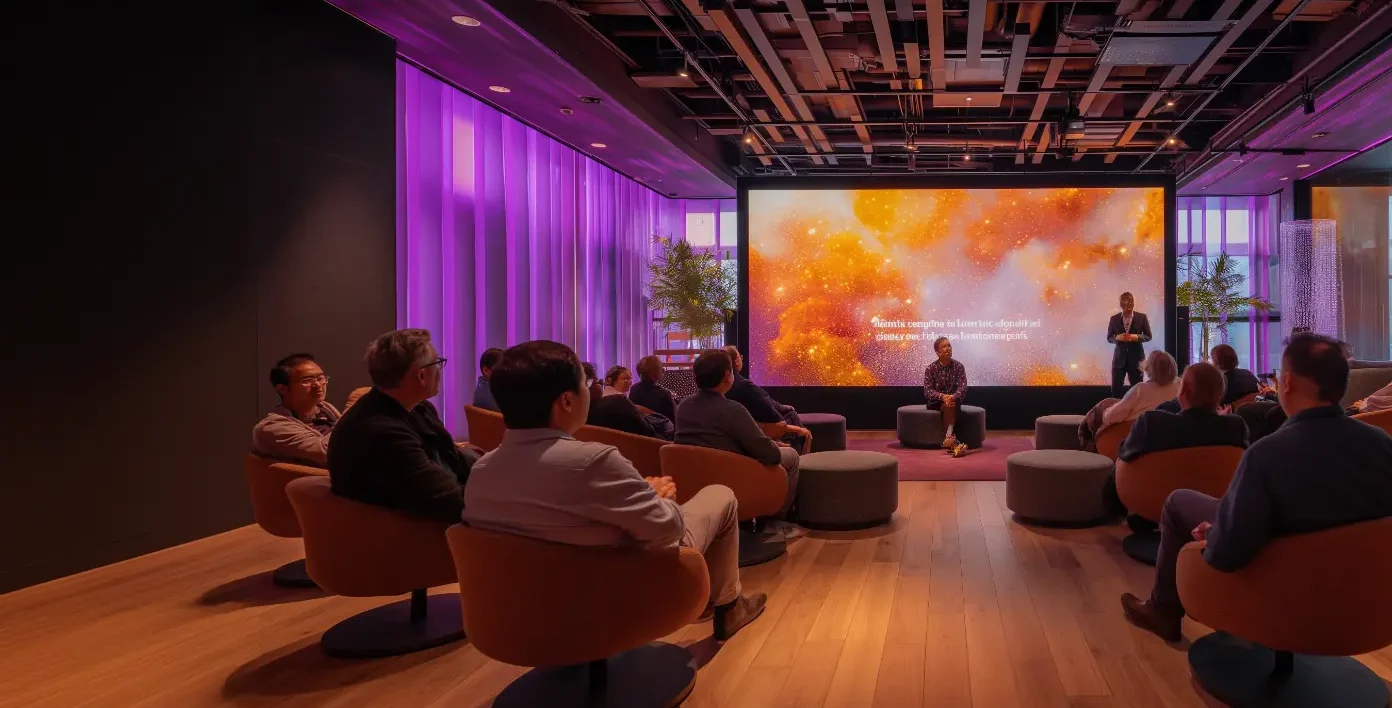


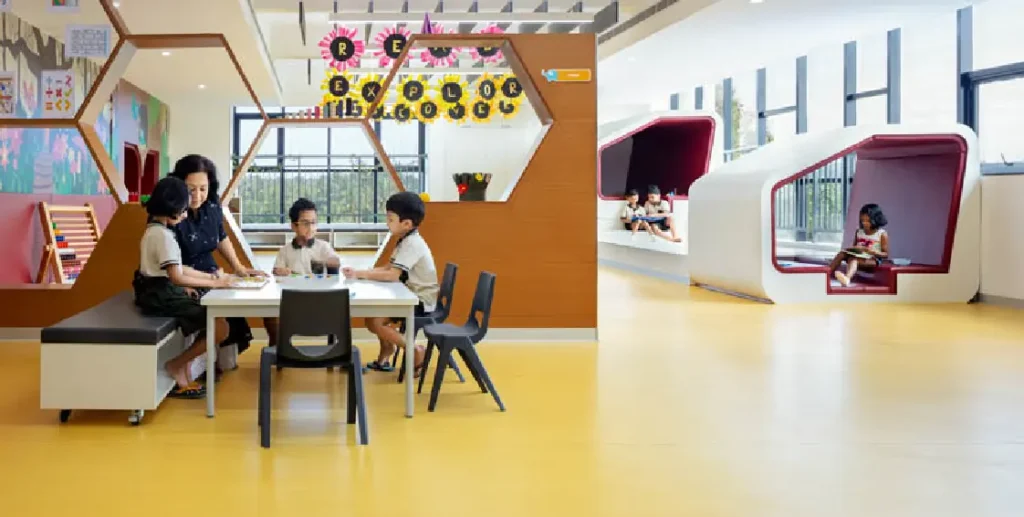
Join PULSE 2024 and drive forward the progress of educational architecture and learner-centric spaces.
Pick the Most Engaging Trends adapted World over for showing ingenious ways of blending Art, Science and Technology to enhance the Joy of Learning.

Indulge in Mind Boggling Sessions of the Most Accomplished Educators, Interior Designers
PULSE is dedicated to shaping tomorrow’s learning spaces by uniting visionaries to explore innovative educational environments. It focuses on defining trends for 21st-century classrooms and designing the future of learning, ensuring that educational spaces evolve to meet the needs of future generations.
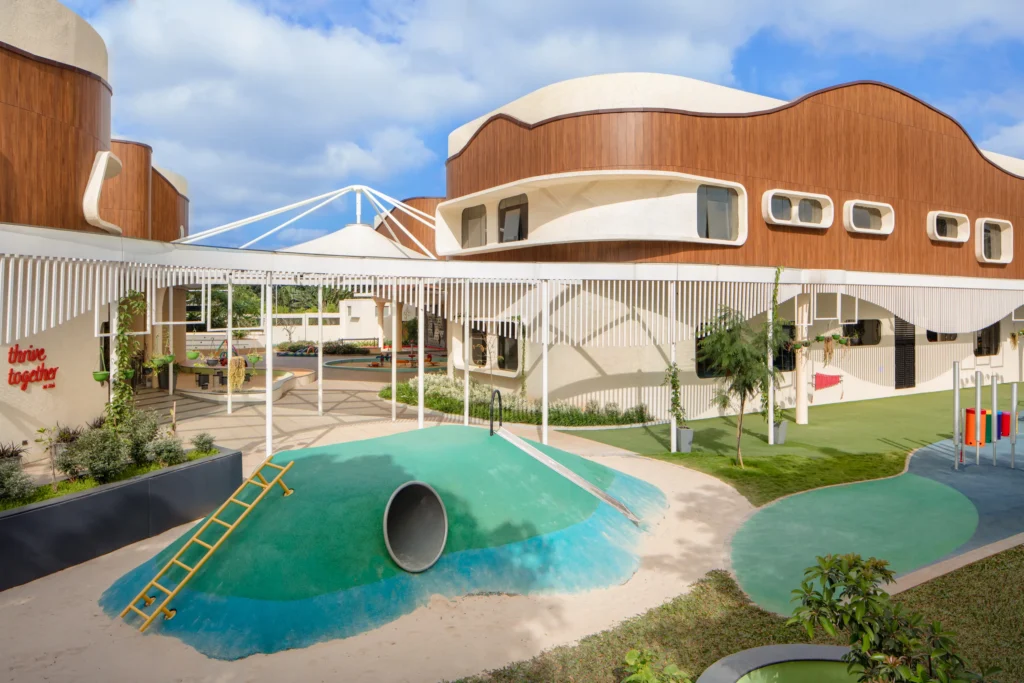
Shaping the Future of Learning Spaces
By staying updated on the latest trends in educational environments, you can foster innovation and encourage best practices. Networking opportunities facilitate meaningful connections with school owners and designers, while hands-on demonstrations offer first-hand experience with iconic learning space products, all contributing to the development of future-ready educational policies.
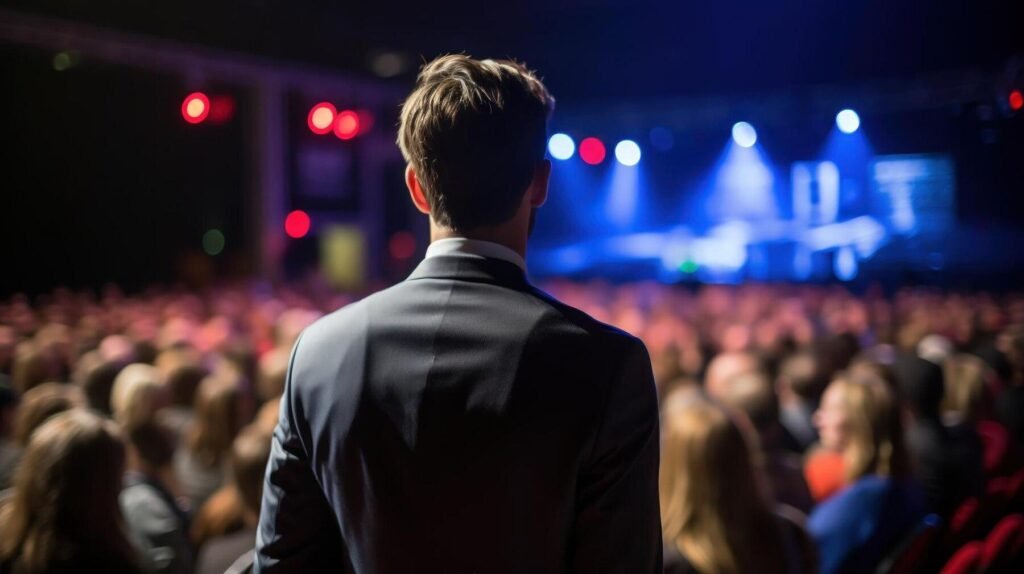
Redefining Innovation and Connection
Explore cutting-edge trends and tools reshaping learning environments. Discover how innovative design maximizes student success while forging connections with global visionaries. Gain cost-effective strategies to save on capital costs and lead in educational design.

Founder, Indian Principals Network
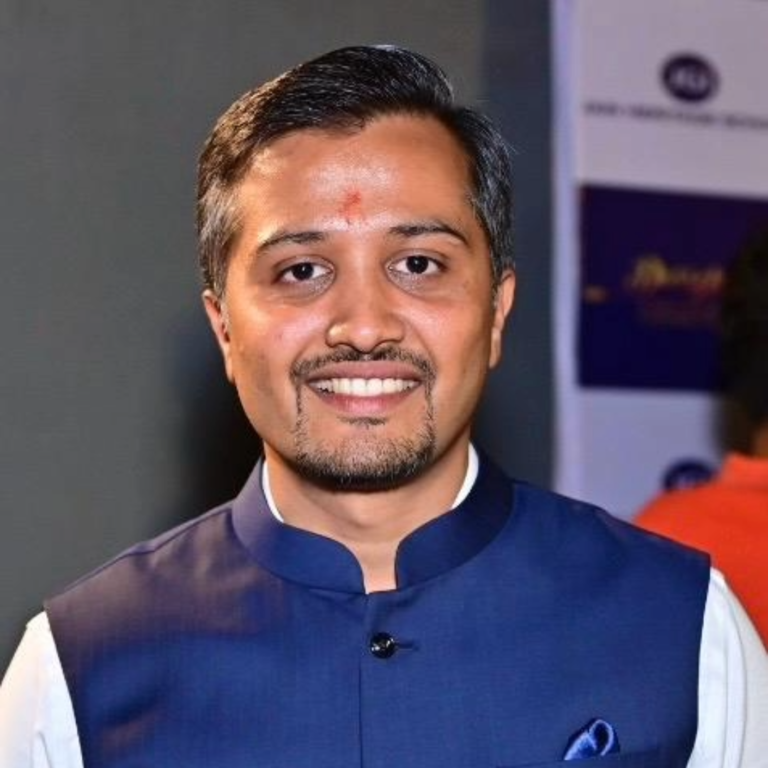
National Project Head, Jain Group of Institutions
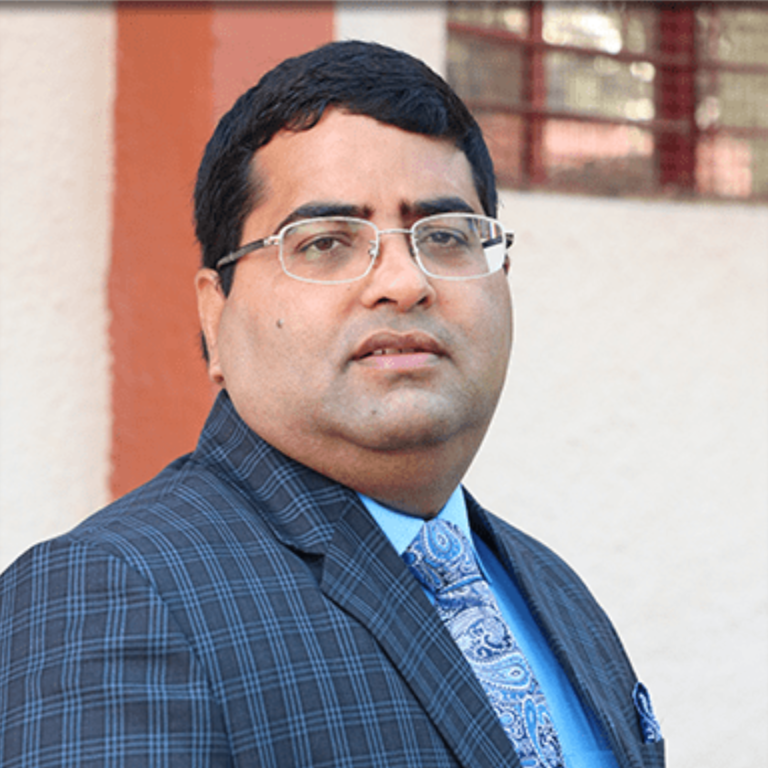
MD, Saigrace Academy International, Dehradun
Display innovative designs and concepts.
Influence the design of
future learning
spaces.
Encourage innovative practices
in
educational environments.
Support the development
of future-ready
educational policies.
Despite billions spent annually on building and renovating schools, the impact of these physical environments on student learning is often overlooked. This talk, led by visionary architect Prakash Nair, will explore how innovative school design can significantly enhance academic and personal growth, fostering deeper connections and coherence within learning environments. As the founder of Education Design International and with over two decades of experience transforming educational spaces across 59 countries, Prakash will share compelling examples and practical strategies for creating environments that truly enhance student engagement and success. He will urge us to rethink the true impact of our investments in school infrastructure and how thoughtful design can genuinely transform education.
Mr. Prakash Nair, Founder & CEO, Education Design International (EDI)
As a Professor of Experiential Learning, with considerable scholarly practitioner expertise, Prof Colin Beard will project how experiential learning is growing rapidly around the globe, and he will highlight how this form of learning affects space design. Learning design and space design are interrelated and this exciting presentation will show how complex 'spatial ecologies' are emerging in many educational institutions and workplaces. The presentation will show many practical and innovative designs of the 21st-century.
Dr. Colin Beard, Emeritus Professor, Sheffield Hallam University & Author, Experiential Learning Design
As educators and architects of spaces, what has been a paradigm shift for you in the way we look at education and spaces which nurture the young minds? As end users of the spaces, how have you involved the student body in directing some of the design decisions/ discussions? For the architects - how have you approached the design of facades of educational buildings? Is it any different from other building types?
Ar. John Alok Decruz, Director, Morphogenesis Ar. Chhavi Lal, Principal, Perkins Eastman Mr. Gaurava Yadav, Founder, Indian Principals Network Ar. Sarika Shetty, Partner, SJK Architects
Prabhat, a seasoned educator, will share the jouney of Why, How and what lead them to build Pathways 2.0 for future generations. The world today is facing unprecedented challenges - social, economic, and environmental! Nevertheless, there are myriad new opportunities and avenues opening too. The children entering education in 2024 will be young adults in 2036. The sense of disequilibrium that we face today as Schools and a Community has compelled to redesign environments to build new pathwavs of learning that foster resilience, adaptability, and creativity. Change has nudged us to shift focus to the windscreen from the rear view for us to continue to reimagine, rebuild and reframe to keep pace with the accelerating change. Learn • Work • Play • Think • Live as mottos of Pathways 2.0 are the pillars that will prepare our students to accomplish their leaning milestones with a leap in efficiency, innovation, autonomy for them to soar like the falcon into the distant future with passion and power or body, mind, and spirit.
Mr. Prabhat Jain, Co-founder, Pathways World Schools
This panel discussion, titled "Building Schools for Real-Life Learning," brings together leading architects and visionary school owners to explore how school design can effectively integrate real-life learning experiences into educational settings. The conversation will delve into how architecture can create dynamic, multi-functional environments that facilitate authentic learning opportunities. Panelists will discuss the importance of designing spaces that blur the boundaries between the classroom and the community, incorporating elements such as maker spaces, school gardens, entrepreneurial zones, and partnerships with local businesses and organizations. These real-life settings allow students to engage in hands-on projects, collaborative problem-solving, and community-based learning that extends beyond theoretical knowledge.
Ar. Chloe Summers, Principal, EIW Architects Ar. Akanksha Gupta, Principal, Vijay Gupta Architects (VGA) Ms. Rupa Sen, Educator & Principal, NPS Group of Schools Ar. Akshara Verma, Partner, ACE Group Architects Ms. Lakshmi Kumar, Director ( Interim) Avasara Academy
Dr. Parul Minhas, a passionate advocate for promoting holistic health in schools, explores the transformative power of well-designed educational spaces in ensuring students' overall well-being. In her talk, she will delve into how environments can foster deep connections with the self, others, and the environment, promoting holistic development and a sense of coherence. Drawing from her extensive research and global experiences, Dr. Minhas will share personal stories and practical strategies for designing schools that support emotional, mental, and physical health. Her insights will highlight how thoughtful design can create nurturing spaces that cultivate a sense of belonging and help students flourish and reach their full potential, ensuring that "all is well" in their educational journey.
"Keynote: Designing Learning Spaces for Diverse Pedagogies"
In this session Dr Knock will explore how future-ready schools can break free from traditional classrooms to embrace diverse pedagogies and prepare students for a complex, ever-changing world. We’ll dive into the power of co-teaching, deeper learning through collaboration, and how thoughtfully designed spaces can create a sense of belonging and connection for both students and teachers.
Workshop: Unpacking Designing Learning Spaces for Diverse Pedagogies
This workshop will deepen the discussion from the keynote by aligning student experiences and co-teaching culture with spatial design that supports these goals. Through case study examples, we’ll explore how thoughtful design can foster collaboration, deeper learning, and a sense of belonging for students and teachers, while allowing time for discussion on how these ideas can be applied in your context.
Dr. Anne Knock, Director, Learning Environment Design, The Learning Future (TLF) Australia
This case study explores the transformative journey of Heritage School towards implementing experiential learning, as detailed by Vishnu Karthik. Heritage's transition from traditional teaching methods to an experiential learning paradigm profoundly influenced student engagement and learning outcomes. This transformation prioritized real-world experiences, project-based learning, and reflective practices, fostering deeper understanding and skill development among students. The case study examines how Heritage designed, deployed, and sustained its experiential learning program through a comprehensive approach that integrated curriculum redesign, teacher professional development, and community involvement. It emphasizes the importance of a culture shift, beginning with redefining learning objectives to encompass critical thinking, collaboration, creativity, and social-emotional skills.
Mr. Vishnu Karthik, Cofounder - Heritage International Xperiential Schools (HIXS)
Planning and designing learning environments, whether new buildings or regenerating existing buildings, provides exciting opportunities to envision where we have come from, where we are now, and dream about how we can best make a difference for our students, teachers, administrators and communities into the future. Philip Idle will share from his 30 years of experience in challenging you to think beyond the safe decisions, and driving towards courageous ideas, sharing and collaborating to solve problems and seeing how we can ‘Shape the Future…as it Unfolds’
Ar. Philip Idle, Director, EIW Architects Australia
aThe panel will delve into the often-overlooked aspects of educational design, such as acoustics, lighting, and furniture ergonomics, and their impact on student well-being and learning outcomes. Sharing experience with learning environments that has been a game changer for student experience.
Ar. Sanchali Harsha, Owner, Kumar & Swamy Architects Mr. Samar Verma, Owner, Samar Accoustics Ar. Jaskaran Singh, Principal Architect, FAB Studio Mr. Rahul Shetty, Director Sales-India, Education & Growth Markets, Steelcase Mr. Syed Sultan Ahmed, Chaiperson, The Association of International Schools of India (TAISI)
Biome Environmental Solutions has designed numerous schools over its 33 years of practice, with a strong focus on creating spaces that foster learning, inclusivity, and ecological sustainability while reducing long-term costs. The firm's approach integrates ecology into the building's design and construction, emphasizing the use of appropriate materials and thoughtful structural solutions. Resilience is achieved by carefully designing essential services, particularly water and wastewater management, and by ensuring the building is climate-friendly. This is accomplished through materials and design details that reduce heat gain while allowing for ample natural light. Cost savings are realized through lower maintenance and operational expenses over time. All of these elements come together without compromising on innovative design, promoting collaboration and creativity among students, and enhancing the health and well-being of everyone who uses the space.
Ar. Chitra Vishwanath, MD, Biome Environmental Solutions
IB and the importance of Learning Spaces in a conducive educational environment
Mr Mahesh Balakrishnan, Sr. Development & Recognition Manager, International Baccalaureate (IB)
In this presentation, Yogendra Patidar will explore the intricate relationship between physical learning environments, the objects within them, and the learners who inhabit these spaces. With over 12 years of experience in the educational furniture industry, he draws on interdisciplinary research from psychology, pedagogy, and environmental design to demonstrate how the arrangement and selection of furniture, tools, and materials can significantly impact student engagement, collaboration, and overall learning outcomes.
Mr. Yogendra Patidar, Director, CIVOM | BW 40 UNDER 40 Award
The focus on a better understanding of the connections between learning environments and student learning outcomes has emerged out of a concern as to whether the pedagogies, curriculum, assessment necessary to develop the capacities in students for the 21st century require different built environments. Our learning spaces need to support multiple learning activities, enable connections, accommodate technology, sustainability, comfort and safety. We need creative and supportive spaces to energize and inspire both students and tutors. Our learning spaces need to reflect institutional values and maximize ownership of the learning environment. We also believe that we need architects, interior designers to ideate with educational imaginaries to articulate distinctive aesthetics that create integrated solutions for learning spaces.
Ms. Sudeshna Sengupta, Director, Academics, Vedanya Education Ms. Anku Sharma, Head, Projects & Operations, Vedanya Education Ar. Chhitiz Gupta, Founder Director, Design Process
A Case Study of a Real Project from Munich International School, Germany. How to work on new learning spaces and to modernise and develop curriculum to teach the students the skills that they will need. How space evolves as a new type of learning space at Munich International School Germany, where students are encouraged to learn in a new way, building skills such as collaboration and researching together with sharing and growing together.
Mr. Daragh Comerford, Director of Learning Technologies, Munich International School (MIS), Germany
Color is a powerful, often underestimated element in the design of learning environments. This presentation will explore the psychological impact of color in educational settings and its profound influence on student engagement, mood, and cognitive performance. Drawing on research from environmental psychology, geographical impact, demographical variances and neuroscience, we will examine how different colors can evoke specific emotional responses and enhance or hinder learning experiences.
Ms. Shivani Verma, CMF Designer, UWC & CT Ventures




Discover the Most Wonderful Resources about everything that happens in the run up to PULSE 2024.
PULSE 2024 is India’s Very First Occasion devoted to Celebrating the Transformation of Learning as well as Learning Spaces.
PULSE will be a Wonderful Occasion for School Owners, Educators, Architects, Interior Designers and Design Professionals who are driven by the passion to shape the future of Learning Spaces in India and the World.
PULSE welcomes all the Visitors to Book their Spot by opting from the Category that includes the delegates of their Fraternity: